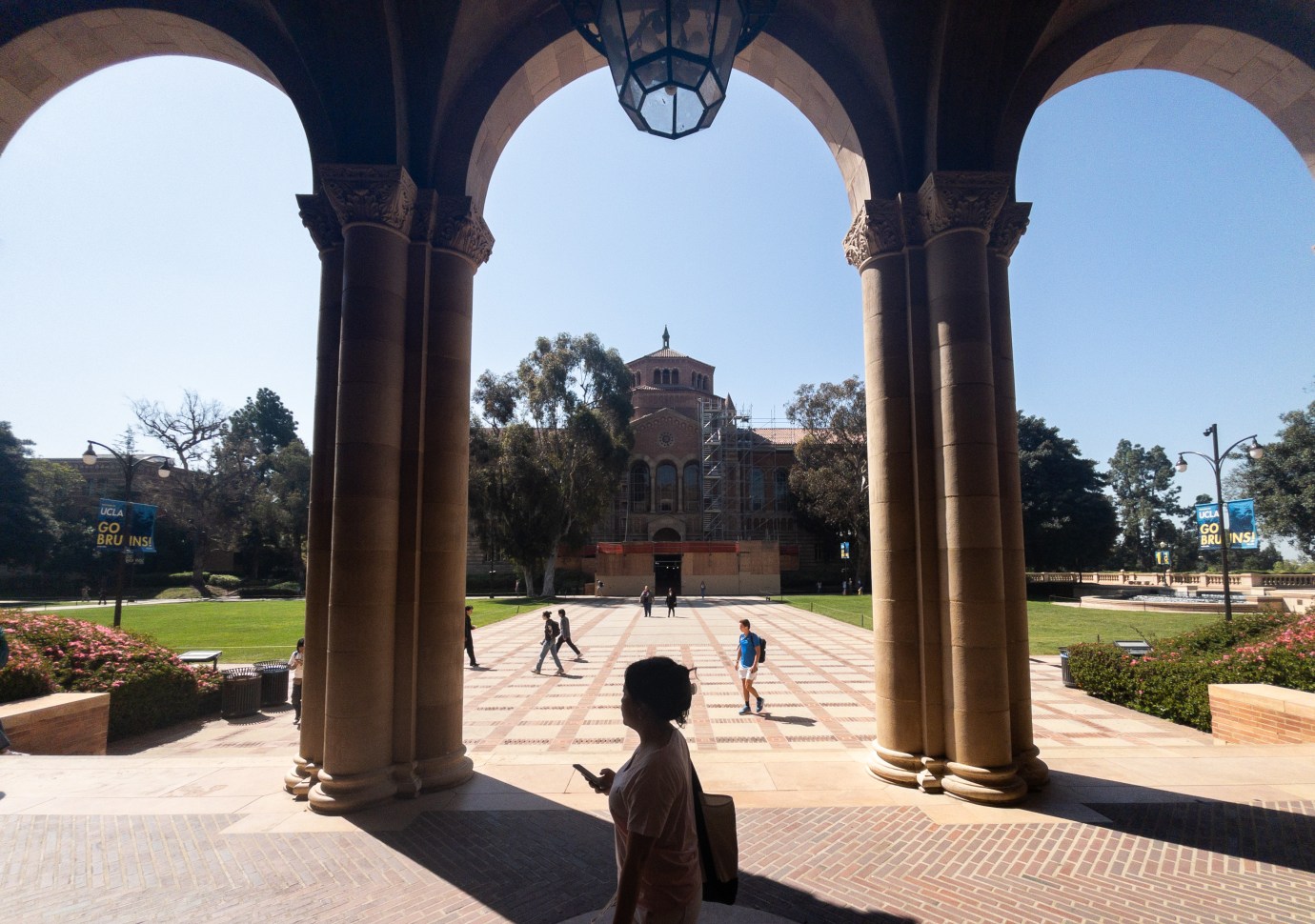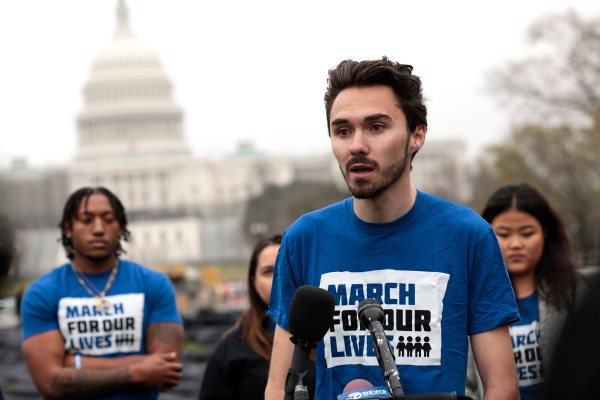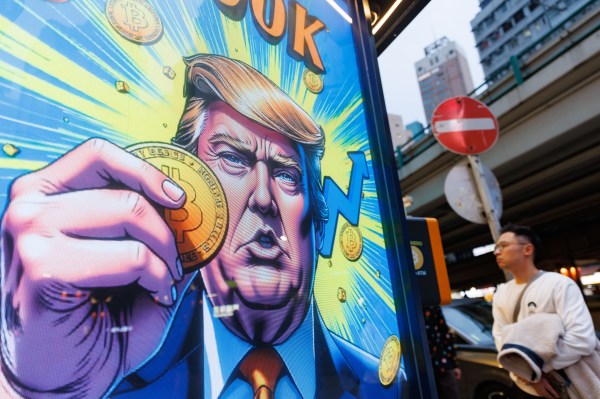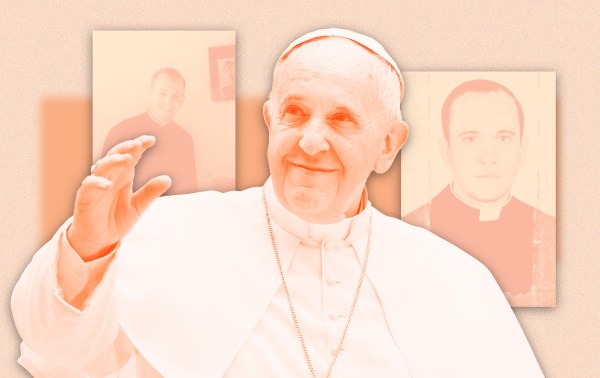Happy Monday! Congratulations to Liesl Benecke, an Australian woman who secured a Guinness World Record earlier this month for the largest collection of Minions memorabilia, gathering more than 1,000 pieces of clothing, plush toys, and other items related to the little yellow villains from the Despicable Me series.
She’s in for a rude awakening, though, once Jonah Goldberg reads this and realizes he can submit his collection.
Quick Hits: Today’s Top Stories
- At least 40 people were killed and more than 1,000 injured on Saturday at the Shahid Rajaee port in southern Iran, as a shipment of a chemical used to make missile propellant exploded. The shipment of sodium perchlorate, which reportedly had arrived in two ships from China earlier this year and was being stored in the port, was meant to help replenish Iran’s missile stocks, depleted from strikes on Israel. The exact cause of the explosion remained unclear.
- Eleven people died and dozens more were injured in Vancouver, Canada, on Saturday after a motorist drove a car into a street where people attended a Filipino cultural festival. Vancouver interim police chief Steve Rai said the driver, who is in police custody after being apprehended by bystanders, had a “significant history” of mental illness-induced interactions with police. Mark Carney, Canada’s prime minister, canceled campaign events ahead of Monday’s parliamentary election. Investigators have reportedly ruled out terrorism as a motive, according to Carney, who added, “we do not believe there is any active threat to Canadians.”
- A Russian drone attack across multiple regions of Ukraine early Sunday left at least four people dead and others wounded. The strikes from some 150 drones killed people in the Donetsk and Dnipropetrovsk regions and came hours after Russia claimed to have reestablished control over areas in the Kursk region that Ukrainian forces took last summer. President Donald Trump told reporters Sunday evening he was “disappointed” in Russia’s continuing attacks as the U.S. tries to broker a peace deal. “I want him to stop shooting, sit down, and make a deal,” Trump said of Russian President Vladimir Putin. In a Truth Social post on Saturday, Trump seemed to question whether Putin was actually interested in a lasting peace deal. “There was no reason for Putin to be shooting missiles into civilian areas, cities and towns, over the last few days,” Trump wrote. “It makes me think that maybe he doesn’t want to stop the war, he’s just tapping me along, and has to be dealt with differently, through ‘Banking’ or ‘Secondary Sanctions?’ Too many people are dying!!!”
- An estimated 250,000 people attended the funeral Mass for Pope Francis in Rome on Saturday, including dozens of heads of states. The pontiff was buried in St. Mary Major Basilica in Rome, at his request, the first time a pope’s final resting place lay outside the Vatican in more than a century. President Donald Trump, who attended the funeral, also met with Ukrainian President Volodymyr Zelensky, French President Emmanuel Macron, and British Prime Minister Keir Starmer in the Vatican to discuss plans for a ceasefire for the war in Ukraine.
- FBI agents on Friday arrested Milwaukee County Circuit Court Judge Hannah Dugan on charges of “concealing an individual to prevent his discovery and arrest” and obstructing or impeding a proceeding. The arrest came after Dugan allegedly sent Eduardo Flores-Ruiz, who was in court for a hearing on a domestic battery charge, and his attorney out of her courtroom through the jury door as immigration agents waited outside the courtroom to arrest Flores-Ruiz, who they allege entered the U.S. illegally. He was later apprehended outside the courthouse following a chase. After her arrest, Dugan appeared in federal court and was released on her own recognizance. “Judge Dugan will defend herself vigorously, and looks forward to being exonerated,” the judge’s attorney said in a statement.
- The Associated Press reported Friday that Defense Secretary Pete Hegseth had used a private internet connection that circumvented Pentagon security protocols in order to use the Signal messaging app on a personal computer. The purpose of the connection, called a “dirty line” and connected to the public internet, was for Hegseth to avoid having his IP address flagged as one assigned to the Defense Department. The New York Times also reported on Friday that the phone number used by Hegseth in recent Signal chats, which were used to discuss classified information, was publicly available on WhatsApp, Facebook, and a fantasy sports site as recently as March.
- The Trump administration on Friday abruptly reversed the cancellations of thousands of foreign student visas. The decision came after mounting legal challenges to the cancellations of thousands of visas from a federal database used to track foreign students, often citing minor or dismissed legal infractions. About 50 of the more than 100 legal challenges filed resulted in judges ordering the government to temporarily undo the cancellations. The Department of Justice said that Immigration and Customs Enforcement was developing a new set of policies for foreign students present in the U.S. on student visas.
- U.S. consumer sentiment has fallen to its fourth-lowest level since the late 1970s, according to the University of Michigan’s survey of consumers released Friday. The final April sentiment index, compiled from a survey of more than 500 households, showed that respondents expected inflation to rise 6.5 percent over the next year, and at a 4.4 percent annual rate over the next five to 10 years, the highest such marks since 1981. Large majorities of the respondents also believed that their incomes would decline, unemployment would increase, and home buying would become more challenging.
- A federal judge sentenced George Santos, the former Republican congressman from New York, to more than seven years in prison on Friday. Santos pleaded guilty last August to charges of wire fraud and aggravated identity theft, after federal prosecutors alleged that he laundered campaign funds to pay for personal expenses, claimed unemployment benefits while being employed, and lied to the Federal Election Commission. Elected in 2022, Santos was expelled from Congress in 2023 after media investigations found he had lied about his résumé, and further allegations of fabrications snowballed.
A Course Correction on Revoked Visas?

Jayson Ma was nearing the end of his final semester at Carnegie Mellon University when he received news that his student visa was in danger of being revoked. “I only have a semester left, and there’s only three weeks left for the semester. We have finals coming up. So, with everything going on, it’s kind of hard to process,” Ma, a Chinese national, told CBS News. “I want to finish my degree, I want to finish my school, and I want to do what’s right.”
But Ma and students like him may have just been tossed a lifeline—for now. After an estimated 1,800 foreign nationals had their ability to legally study in the U.S. revoked, the Trump administration on Friday moved to reinstate the visa registrations of thousands of students.
During a court hearing in Washington, a lawyer for the Justice Department told a federal judge that Immigration and Customs Enforcement (ICE) is revising its system for reviewing student visa holders, of which there are more than a million in the U.S. Until the new policy is finalized, foreign nationals will no longer have their student visa records removed from an online database. But affected students fear the reversal, which came amid mounting legal challenges to the visa cancellations, may only afford them temporary protection from the Trump administration’s sweeping immigration crackdown.
About two months ago, the administration began wiping student visa registrations from the online database—in some cases without notifying the visa holders or their universities. At the same time, it has detained several foreign students and academics, including green-card holders, accusing them of supporting terrorist groups.
The campaign began with the targeting of students involved in anti-Israel protests and advocacy, an ostensible part of the administration’s efforts to combat the very real problem of antisemitism on college campuses. In March, ICE arrested Mahmoud Khalil—a graduate student and U.S. permanent resident—in apparent connection with his role in coordinating pro-Palestinian protests at Columbia University, activism that often veered into outright antisemitism and support for Hamas. A month later, immigration authorities detained Mohsen Mahdawi, co-president of the now-suspended Columbia Students for Justice in Palestine group.
Rumeysa Ozturk, a doctoral student at Tufts University, was arrested in March after her student visa was terminated. The Department of Homeland Security (DHS) claimed Ozturk had “engaged in activities in support of Hamas” but did not provide any additional details. Her detention seemed to be the result of an op-ed she wrote in a student newspaper criticizing the school’s response to student calls to label Israel’s actions in Gaza a genocide and divest any financial ties to the Jewish state.
The problem? None of these students had been charged with any crimes—a typical prerequisite for revoking the legal status of non-citizen residents. Instead, in all three cases, Secretary of State Marco Rubio invoked broad authority from the Immigration and Nationality Act. The 1952 law states that any foreign national “whose presence or activities in the United States the Secretary of State has reasonable ground to believe would have potentially serious adverse foreign policy consequences for the United States is deportable.”
While the extent to which some of the campus protests targeted Jewish students underscored the tension between free speech and voicing support for a terrorist group, it’s far from clear what “serious adverse” effect campus protests and student newspaper op-eds could have on U.S. foreign policy. But Rubio has argued that, because the government can and does consider factors such as political activity and speech when granting visas, it can revoke already granted legal status on the same grounds. The parallel is shaky at best, as our own Kevin D. Williamson argued regarding the Khalil case: “There is a difference between having political criteria on the front end of the visa-application process and using a foreign-policy pretext to expel a legal permanent resident because he has been engaged in political activity that is, however nasty, entirely legal as far as the government is concerned.”
First Amendment protections apply to all persons in the country, not just citizens, but whether a non-citizen is legally protected from losing immigration privileges due to their speech is not a settled question. “We do know that when it comes to, say, criminal punishment or civil liability, non-citizens are, generally speaking, just as protected as citizens,” Eugene Volokh, a professor of law emeritus at UCLA and First Amendment expert, told TMD. “The government can’t prosecute someone for speech that is protected by the First Amendment just by saying, ‘Well, he’s not an American, so rules are different.’ But when it comes to immigration status, it could be a very different matter.”
And the case law is largely divided on the issue. “There is some statutory authorization, and it basically says that, as a statutory matter, ‘Yes, the government could deport people based on their speech,’” Volokh added. “The question is whether the Constitution tolerates that, and we don’t know the answer to that.”
Although cases like those of Kahlil and Ozturk have attracted widespread attention, most of the growing number of foreign students losing their legal status may have less to do with targeting pro-Palestinian and anti-Israel advocacy. Rubio suggested in an April 17 interview that the “majority” of student visa cancellations “have nothing to do with” the State Department effort.
“We don’t go into statistics or numbers; we don’t go into the rationale for what happens with individual visas,” a State Department spokeswoman said on April 22. “What we can tell you is that the department revokes visas every day in order to secure our borders and to keep our community safe, and we’ll continue to do so.”
According to Inside Higher Ed, an education-focused news outlet that has been tracking visa cancellations, more than 1,800 students at nearly 300 colleges and universities have had their record of legal status terminated in an ICE database called the Student and Exchange Visitor Information System (SEVIS). Prior to Friday’s reversal, this broader, separate crackdown had even roped in a number of students who did not have a criminal record or any apparent association with campus protests. Students with infractions as minor as traffic stops were told that their visas would be revoked. In one case, an individual who was charged with a DUI more than 10 years ago while in the U.S. on a student visa—and disclosed it when he applied for a subsequent visa, which was approved—had his status reversed in March. The attorney for Ma, the Carnegie Mellon student, believes a 2023 DUI charge, later expunged, could be the reason his visa was revoked.
“It seems like they’re going lower and lower on the list of flags in the system to terminate these students’ status,” Elizabeth Goss, an immigration attorney specializing in higher education, told the Wall Street Journal, referring to SEVIS.
Some students and their institutions weren’t even informed of their change in legal status, let alone provided with the justification for the decision. “What we understand is that DOGE was given access to all these student records, all these visa files, and they [probably] ran some AI that gave them all these hits if they searched for things related to arrests or tickets or citations,” said Dustin Baxter, a lawyer representing dozens of international students in Atlanta who challenged the visa cancellations in court. “And they just were able to get a batch of people.”
“We all get stopped for speeding, or for running a red light, or passing a stop sign we didn’t see,” he added. “That’s not a valid reason to revoke somebody’s student status.”
Baxter’s cases are just a few of the numerous lawsuits brought by students who are now starting to see some legal wins—a possible impetus for the administration’s partial U-turn last week. On Tuesday, U.S. District Court Judge Victoria Calvert ordered the temporary reinstatement of the visa status for 133 students. Judges in at least half a dozen states have issued temporary restraining orders giving students temporary legal status to avoid deportation.
But even with the administration’s temporary pause on visa cancellations, students remain fearful that their status could be reversed with little to no explanation. University administrators, too, are now operating in uncharted waters. “As an institution, we believe in honoring and obeying the law,” the president of a small, faith-based university told Inside Higher Ed, speaking on the condition of anonymity.
“It’s very difficult to do that when you don’t quite understand exactly what laws are being applied,” he added. “We feel like all we can do is wait and see, and pray.”
Today’s Must-Read

What ‘Buying American’ Really Means
That Americans can purchase the product of their choice among countless available domestic and foreign brands is a quintessential part of living in a free society. And yet, our leaders in Washington, D.C., have forgotten that. At least that’s what it seems like based on what they’ve been doing and the rhetoric they’ve used as justification. Not only is Trump, supported by the Republicans who control Congress, implementing tariffs that threaten to make some imports prohibitively expensive or outright unavailable, government officials are telling us that we don’t need all of those choices anyway—that it’s for our own good.
Toeing the Company Line

Hogg Wild
All power, no principles, and the problem with our politics.

Pay to Play
What should a Democratic House do about Trump’s crypto scam?







Worth Your Time
- As the Trump administration threatens to revoke Harvard University’s tax-exempt status, Joshua Zeitz, wrote for Politico about the only other time in American history such a step was taken: when the Internal Revenue Service acted against Bob Jones University, which had banned interracial dating. Decades later, the university eventually caved—but the government’s effort “morphed a ragtag collection of evangelical Christians and Catholic social conservatives into a movement.” Zeitz believes something similar could happen today. “There is a broad constituency of people who care about medical and scientific research,” he wrote. “There are alumni of elite and non-elite research universities who are invested in their future. There are families who rely on these institutions—they use their hospitals and affiliated medical centers (Harvard Medical School is directly affiliated with 15 hospitals and research institutes), and municipalities that count on them for employment, social services, and voluntary contributions in lieu of property taxes. Harvard alone funds over 7,000 units of affordable housing, operates free legal aid and mobile health clinics, partners with local nonprofits to combat food insecurity—the list goes on. The lesson for Trump is clear: When the IRS is weaponized to pursue public policy agendas, even when those agendas are laudable, unexpected consequences can ensue.”
- In yet another entry in the annals of “journalists explore ways people used to connect face-to-face,” Andrew Fedorov wrote in The Atlantic about the decline of hitchhiking and the brave souls who still embrace riding with strangers. “But, far and away, the most common reason I hear when I talk with people about why they hitchhike is they enjoy the unexpected connections they form. The conversations you have in a stranger’s car can be startlingly intimate,” he wrote. “Drivers tend to unload everything: their closeted sexuality, wartime traumas, crimes they’ve committed. Kenny Flannery, a Connecticut native who’s been hitchhiking regularly since 2007, remembered a driver taking advantage of their mutual anonymity to say he’d gotten away with murder. ‘He even said that out loud: “You don’t know anyone I know; you never will,”’ Flannery recalled to me. ‘I might be the only person he’s ever told that he killed some dude.’ Reporting any driver’s confession to the police felt like it would be a dead end, Flannery said: ‘By the time I would have had phone service or anything, it would have been, “Someone I can’t describe told me a story you won’t believe coming from a place they didn’t tell me.”’
NBC News: Trump Calls NFL Owners ‘Stupid’ for Not Taking [Colorado Quarterback] Shedeur Sanders in First Round
The Economist: Water Sommeliers Say the Simplest Drink Is the Future of Luxury
Wall Street Journal: Meta’s ‘Digital Companions’ Will Talk Sex With Users—Even Children
In the Zeitgeist
The NBA playoffs are in full swing, and we’ve already seen one instant classic moment: Denver Nuggets forward Aaron Gordon’s buzzer-beating dunk against the Los Angeles Clippers on Saturday.
Let Us Know
Do you think the Trump administration is justified in expanding the grounds for which foreign students can have their visas terminated?

















